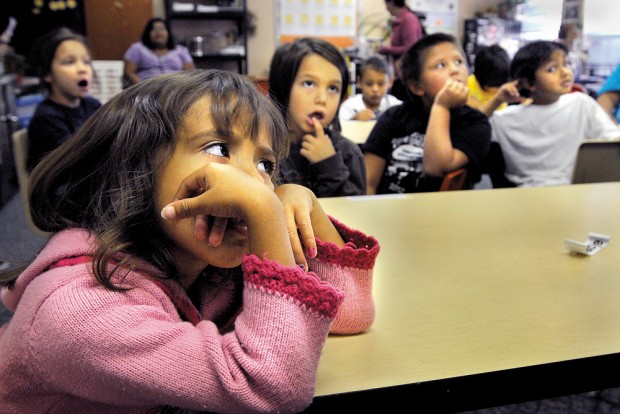
Associated Press
GREAT FALLS – The Montana Legislature created a program to help the state’s Indian tribes develop educational and reference materials to keep their native languages alive as the number of people who fluently speak the languages continues to decline.
Lawmakers allocated $2 million for the Montana Indian Language Preservation pilot program in Senate Bill 342, sponsored by Sen. Jonathan Windy Boy, D-Rocky Boy.
Superintendent of Public Instruction Denise Juneau said Indian Education for All includes a component on preserving cultural integrity, which would include preserving languages.
“There is a need to figure out ways to preserve that language, whether that be through technology or video or dictionaries,” Juneau told the Great Falls Tribune.
The bill allows tribes to use the money to create audio and video recordings, dictionaries, reference materials and curricula. The tribes must demonstrate progress and must supply copies of their work to the Montana Historical Society for preservation and use by the public.
Tribal colleges and historic preservation offices are expected to be involved in the effort.
“This is an amazing gesture,” said Nicholas Vrooman, a Helena historian who is working with the Little Shell tribe on administering the funds the tribe will receive under the pilot project.
Tribes must submit proposals for use of funds by Sept. 30. The money is to be split evenly among Montana’s seven Indian reservations and the Little Shell Tribe, a state-recognized tribe. The project is being overseen by the state Tribal Economic Development Commission, which is attached to the Commerce Department.
The bill was signed by Gov. Steve Bullock on May 6.
Richard Littlebear, president and dean of cultural affairs at Chief Dull Knife College in Lame Deer, said the federal American Indian Languages Preservation Act of 1990 helped spur preservation efforts, but he said competition for federal grant money is intense.